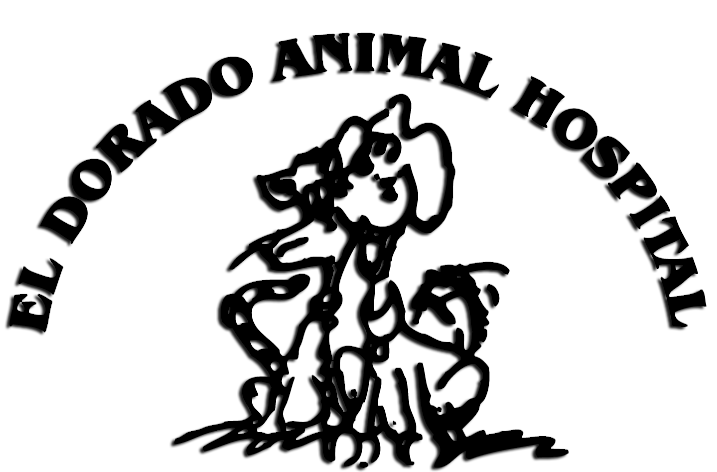There are many illnesses out there that our pets can acquire, some are contagious to other pets and some are even contagious to humans. Vaccinations help protect your pet against many of these illnesses and are a crucial part of pet ownership. We can help you better understand what your pet needs to live a long, happy & healthy life. Scroll down for more information on what exactly these illnesses are and how you can help protect your furry friend.
Canine Wellness
- DA2P-PVVL4
- Bordetella
- CIV
- Lyme
- Rattlesnake Vaccine
- Rabies
DA2P-PVVL4 - commonly referred to as Distemper-Parvo, but this vaccine provides a much wider array of protection than just two viruses. The letters in the name of this vaccine stand for the letters of more than 5 different viruses. We have separated them out so you may better understand how this vaccine helps protect your canine companion.
D= Distemper
–
a very contagious virus causing high fever, discharge from the eyes and nose, coughing and can lead to central nervous system difficulties, including seizures and death. Although dogs may overcome distemper, there is no known
cure
and some side effects after contraction last for life.
Route of contagion and risks: Distemper is an airborne virus and highly contagious. Outbreaks are common in areas where vaccines are not required (some shelters, boarding facilities, groomers and dog parks).
Hosts:
Although puppies/dogs are the primary host, distemper has been found in other animal such as raccoons, skunks, ferrets, coyotes, foxes and wolves.
A2= Adenovirus Type 2
–
a viral infection related to canine infectious hepatitis and infectious tracheobronchitis. Clinical signs can include fever, coughing, redness or discharge from the eyes, abdominal pain, vomiting, diarrhea, corneal clouding, and chronic kidney disorders. Death occurs in 10-30% of animals who contract this virus.
Route of contagion and risks:
Adenovirus Type 2 can be spread through urine, feces and saliva. Dogs with outdoor exposure are at higher risk to contract Adenovirus 2.
Hosts:
This virus has been found in many carnivores including dogs, foxes, wolves, coyotes, bears, lynx and mountain lions.
P= Parainfluenza
–
a virus that is highly contagious and one of the most common infections leading to tracheobronchitis (more commonly known as kennel cough). Symptoms consist of coughing, low-grade fever, nasal discharge, decrease in energy and appetite.
Route of contagion and risks:
Parainfluenza is spread easily through both direct and indirect contact of bodily fluids/secretions. It can commonly be found in areas where vaccines are not required and in areas of multiple dog populations- shelters, rescue centers, boarding facilities, groomers, dog parks, competitions and shows.
Hosts:
Parainfluenza is primarily a Canine virus. Some studies have found that ferrets may also be at low risk.
PVV=Parvovirus
–
a highly
contagious virus causing fever, vomiting, diarrhea and/or bloody diarrhea, loss of appetite, depression and mild to severe dehydration. Death rate is high, especially in puppies.
Route of contagion and risks:
Parvo is most commonly spread through ingestion of feces. The virus can unknowingly be tracked into any environment by any person or animal. Exposure to any environment can put a puppy at serious risk. This especially includes pet stores, training facilities, shelters, breeding facilities, rescue centers, boarding facilities, groomers, dog parks, competitions and shows. Puppies have poor immunity and require a series of multiple parvo vaccinations - one puppy vaccination is not enough.
Hosts:
Parvovirus has typically been found in the canine species, including wild dogs. Some cases have also been reported in raccoons and skunks.
L4=Leptospirosis
(the 4 indicates the vaccine protects against 4 different strains of Leptospirosis) -
a bacterial infection that can cause, fever, depression, joint and muscle pain, vomiting, dehydration, sudden kidney failure and liver disease.
Route of contagion and risks:
Leptospirosis can be contracted through the soil or water that has been contaminated by infected urine. Pets with any outdoor exposure are at higher risk.
Hosts:
All mammals including humans are capable of contracting Leptospirosis.
Bordetella
–
also known as kennel cough or tracheobronchitis, bordetella is a virus that is highly contagious. Symptoms consist of coughing, low-grade fever, nasal discharge, decrease in energy and appetite.
Route of contagion and risks:
It is spread easily through both direct and indirect contact of bodily fluids/secretions. It can commonly be found in areas where vaccines are not required and in areas of multiple dog populations- shelters, rescue centers, boarding facilities, groomers, dog parks, competitions and shows.
Hosts:
Bordetella is primarily a canine virus. Some studies have found that ferrets may also be at low risk.
CIV=Canine Influenza (H3N8 & H3N2)
-
assigned to the CIRD (Canine Infectious Respiratory Disease) group, canine influenza, or “flu” is somewhat new. This vaccine covers 2 (H3N8 & H3N2) of several strains of this virus. Symptoms include fever, coughing (sometimes coughing up blood), nasal discharge, decrease in energy and appetite. Canine influenza can cause severe respiratory issues that progress rapidly and lead to death in a matter of hours.
Route of contagion and risks:
It is spread easily through both direct and indirect contact of bodily fluids/secretions. Canine influenza can be found in areas of multiple dog populations- shelters, rescue centers, boarding facilities, doggy daycares, groomers, dog parks, pet stores, training facilities, competitions and shows.
Hosts: H3N8 was first seen in horses before it was later discovered in dogs. H3N2 is better known as Avian Flu, an indicator that this strain began with birds before it spread to dogs. No cases of either virus have been found in the human population.
Lyme
–
Lyme is a bacterial disease that causes recurring health issues including fever, decrease in energy and appetite, joint swelling and lameness. In rare cases the kidneys and heart may also be affected and can lead to death.
Route of contagion and risks:
Lyme disease can only be transmitted through the bite of the black-legged tick (also known as the deer tick) that has been infected with the bacteria. Exposure to ticks is the culprit. Hunting/tracking dogs or dogs that are in wooded areas are at higher risk.
Hosts:
Although Lyme disease can only be spread by the infected tick, most mammals are susceptible to the disease, including humans.
Rattlesnake Vaccine
-This vaccine assists in reducing the severity of venomous snake bites. Hunting/tracking dogs and dogs that have exposure to the countryside should be vaccinated. Remember that the vaccine only reduces the severity of the bite and the dog will still require medical attention.
Rabies- a contagious virus with a 100% mortality rate. Symptoms include mild to severe aggression, hallucinations, seizures, paralysis.
Route of contagion and risks:
Rabies is spread though bite wounds and saliva transmission. Any mammal in any environment is at risk; therefore Rabies vaccination for your pet is required by law.
Hosts: Any warm-blooded mammal is susceptible to Rabies- that includes humans! It is imperative to keep pets up to date with the Rabies vaccination.
Hosts: Any warm-blooded mammal is susceptible to Rabies- that includes humans! It is imperative to keep pets up to date with the Rabies vaccination.
Feline Wellness
- EVFVRC
- LV
- Rabies
EVFVRC -
commonly referred to as Feline Distemper, but this vaccine provides more protection than just feline distemper. The letters in the name of this vaccine stand for the letters of 3 different viruses. We have separated them out so you may better understand how this vaccine helps protect your feline companion.
EV=Enteritis, also known as Panleukopenia
-
is a highly contagious and often fatal virus. Symptoms include fever, vomiting, diarrhea, decrease in energy and appetite.
Route of contagion and risks:
The virus is found through direct and indirect contact of bodily fluids/secretions, but can survive in the environment for up to one year. It is resistant to many disinfectants, therefore is incredibly hard to eliminate. All kittens and cats in all environments are at risk and should be vaccinated.
Hosts:
This type of parvovirus can infect cats, raccoons, mink and foxes.
FVR=Feline Viral Rhinotracheitis or Feline Herpesvirus
-
another highly contagious virus. Cats develop “cold-like” symptoms- sneezing, nasal & ocular discharge.
Route of contagion and risks:
It spreads through direct and indirect contact of bodily fluids/secretions. Cats at risk include multi-populated environments like rescue/adoption centers, boarding facilities and multi-cat households. Both indoor and outdoor cats are susceptible.
Hosts:
Feline Viral Rhinotracheitis is primarily a domestic cat virus. It has also been found in cheetahs, lions and linked to pumas.
LV or FeLV=Feline Leukemia Virus
- a common infectious disease. Because it is an infectious disease, any affliction has the possibility of being a symptom of feline leukemia. Some of the more common symptoms are fever, decrease in energy and appetite, weight loss, persistent diarrhea, and enlarged lymph nodes. Cats with leukemia will eventually die from the virus (average life expectancy in 2 ½ years).
Route of contagion and risks:
Feline leukemia is spread through direct contact of bodily fluids/secretions and through the milk of infected cats. Outdoor cats, multi-cat households and anywhere that a cat may have one-on-one contact with another cat puts them at risk.
Hosts:
Domestic cats are the only known host of the feline leukemia virus.
Rabies
is a contagious virus with a 100% mortality rate. Symptoms include mild to severe aggression, hallucinations, seizures, paralysis.
Route of contagion and risks:
Rabies is spread though bite wounds and saliva transmission. Any mammal in any environment is at risk; therefore Rabies vaccination for your pet is required by law.
Hosts:
Any warm-blooded mammal is susceptible to Rabies- that includes humans!
It is imperative to keep pets up to date with the Rabies vaccination.








